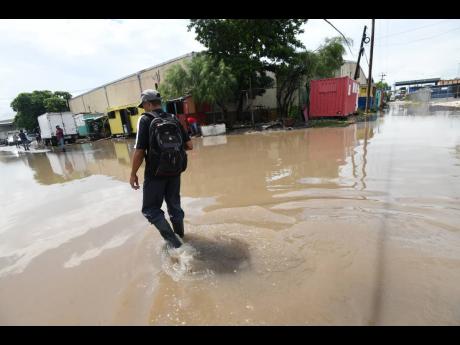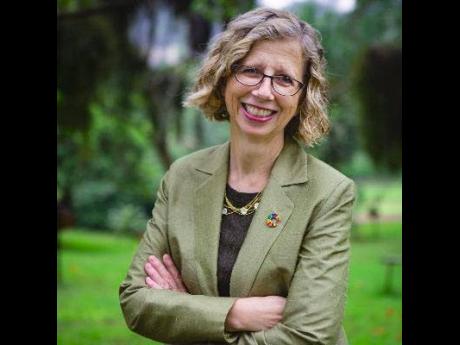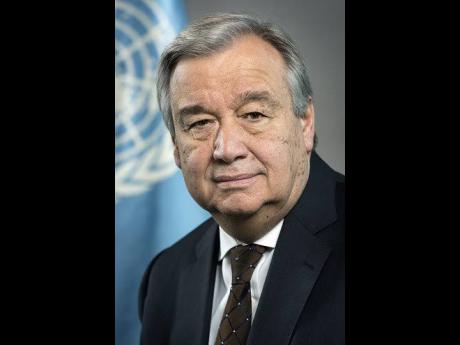Earth Today | Adaptation Fund commits to flexible financing for climate change
THE ADAPTATION Fund, from which Jamaica has benefitted, has noted its commitment to help the world recover better from the COVID-19 pandemic, with its offer of ‘flexible, innovative, and effective financing’ to help developing countries adapt to climate change.
“As we enter the new year facing the compound impacts of climate change and COVID-19, the need for adaptation action and a resilient recovery will become more urgent,” the Fund said in its 2020 Year in Review document shared with the media.
“The Adaptation Fund will continue to work with the most vulnerable to build climate resilience and reduce future risks while laying foundations for a resilient recovery and continuing to offer flexible, innovative, and effective financing to meet the adaptation needs of countries,” the entity added.
This comes on the heels of significant progress markers for the Fund in 2020, including new grant-funding windows and conducting its business virtually.
“Many Fund projects have adapted directly to continue to build resilience in creative and safe ways during the pandemic. It was also the first climate fund to hold a virtual board meeting and approve projects virtually amid the pandemic and has adapted to continue to deliver to the most vulnerable and provide virtual project visits, knowledge products, online trainings, webinars, and other resources,” noted the Fund, which concluded the year having successfully raised US$116 million in new pledges to bankroll projects and coinciding with the fifth anniversary of the Paris Agreement.
MOBILISING FINANCIAL RESOURCES
The emergence of COVID-19, which has infected more than 93 million people globally and killed more than two million, has required the unprecedented mobilisaton of financial resources to support the response efforts. In the process, other priorities, including climate change, have been forced on to the back burner.
This has prompted a number of stakeholders, including United Nations Secretary General António Guterres and Head of the United Nations Environment Programme (UNEP) Inger Andersen to call for focused and deliberate effort to build back better after the pandemic and with attention to climate change and the environment.
For his part, the secretary general has advanced six actions that countries need to take to build back better, including that “the huge amounts of money to be spent on recovery” from the COVID-19 deliver new jobs and businesses through a clean, green transition; and that where taxpayers’ money is used to rescue businesses, that they be tied to “achieving green jobs and sustainable growth”.
Additional actions include that fiscal firepower drive a shift from the grey to the green economy, empowering societies and people to be more resilient and that public funds be used to invest in the future, not the past, and flow to sustainable sectors and projects that help the environment and the climate.
Guterres has also recommended that climate risks and opportunities be incorporated into the financial system as well as all aspects of public policymaking and infrastructure and that all work together as an international community.
Andersen agrees.
“The pandemic is a warning that we must urgently shift from our destructive development path, which is driving the three planetary crises of climate change, nature loss, and pollution. But it is clearly also a major opportunity. I urge governments, businesses, and individuals – particularly those with the greatest climate footprint – to take this opportunity to protect our climate and nature for decades to come,” she said in the forward of the recently published UNEP 2020 Emissions Gap Report.
The report assesses the gap between the estimated future global GHG emissions if countries implement their climate-mitigation pledges and the global emission levels from least-cost pathways that are in line with realising the temperature goals of the Paris Agreement.
The report has revealed that the world is headed towards a more than three degrees rise in temperature by the end of the century without decisive and sustained actions to mitigate the fallout from rising sea levels and associated coastal erosion and species loss that can affect fisheries. These are in addition to extreme weather events, such as droughts and extreme hurricanes, that have impacted the region over recent years, as well as the risk to water and food security, as well as public health.
Meanwhile, Andersen, in citing the report findings, notes that there is need for enhanced ambition in the effort to stay ahead of climate-change impacts.
“The report finds that stronger action must include facilitating, encouraging, and mandating changes in consumption behaviour by individuals and the private sector – enabling consumers to avoid high-carbon consumption by, for example, redesigning cities, making housing more efficient and promoting better, less wasteful diets,” she said.
“The wealthy bear the greatest responsibility in this area. The combined emissions of the richest 1 per cent of the global population account for more than twice the combined emissions of the poorest 50 per cent. This elite will need to reduce their footprint by a factor of 30 to stay in line with the Paris Agreement targets,” the UNEP boss added.




